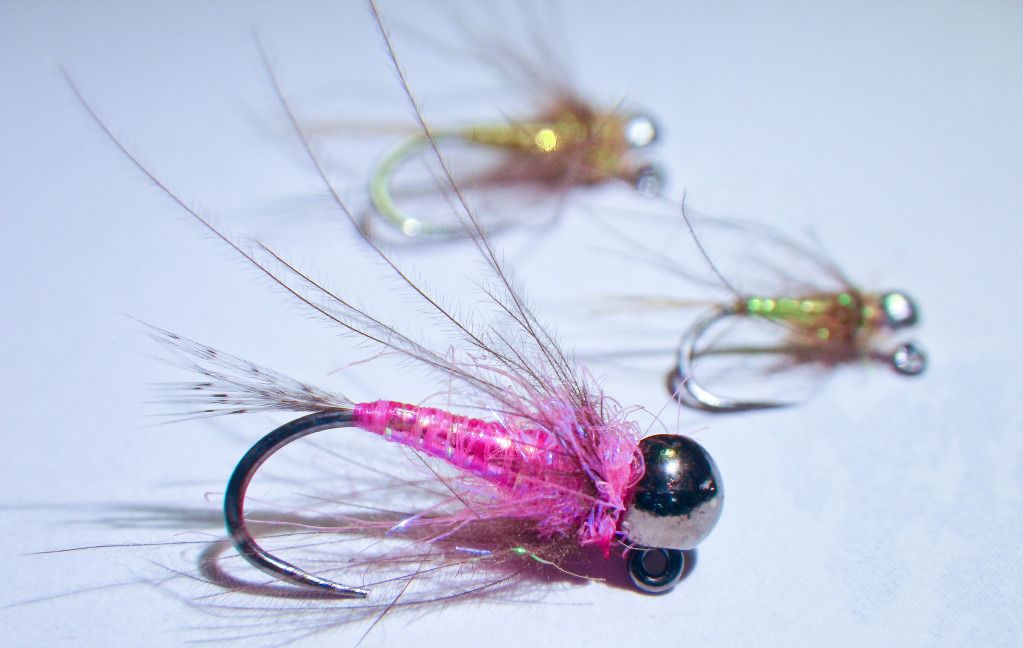
Monday, 28 January 2013
Wednesday, 23 January 2013
Monday, 21 January 2013
Why Pink?
I am sure those of you crazy enough to venture in to the
tundra recently (I most certainly was) had a few bright flies with you. All
year I try to fish imitatively, well almost, with drab browns and olives being
wrapped around hooks to give some suggestion of life. However when that
thermometer plunges and my mind turns to winter grayling I break out the flash.
Anecdotally the evidence seems to be there, most of my
grayling recently have fallen to the above pink grub and it could not be much
brighter. The flash in the abdomen is enhanced by wrapping the semi translucent
material over a layer of silver tinsel, the photo does not do the effect real
justice so you will have to trust me. Most of my friends have been doing the
same as well, luminous Czech nymphs, tinsel jigs, hot spot pheasant tails the
list goes on.
This got me thinking, are we catching more fish on bright
flies because we are fishing mainly bright flies, or is there something more to
this… my research seems to suggest there may be but I am not sure I understand
it.
During the summer trout eyes detect light mainly using a pigment
called rhodopsin and have low levels of a second pigment called porphyropsin.
In the winter the ratios are flipped, the flip occurs due to changes in both
temperature and shorter daylight hours. Interestingly it also occurs in salmon
and seatrout as they prepare to enter freshwater again.
All well and good but what does it all mean Basil, well I am
not sure. Porphyropsin absorbs light at a longer wavelength than rhodopsin, the
highest sensitivity for rhodopsin is in the blue/green area and this shifts more
solidly in to the green area. This also means that in the winter fish eyes
should be more sensitive to red (and therefore pink) light and less to blue. Could
this be the reason for the success of pink and hot orange flies in the winter?
I don’t really know. All I can say for sure is for the next six weeks there
will be a lot of pink on my leader.
Subscribe to:
Comments (Atom)





